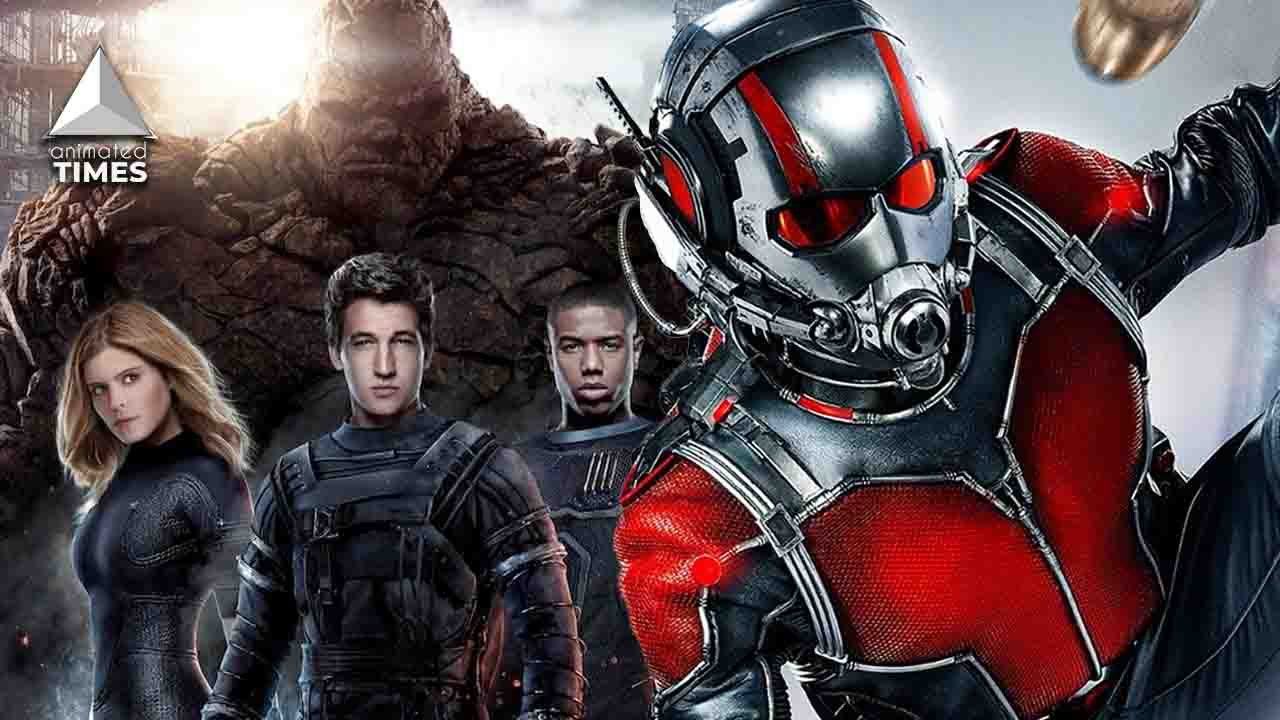According To A New MCU Theory, Ant-Man Accidentally Created Marvel’s Fantastic Four
The Fantastic Four are set to appear in the MCU sometime in the next several years, as the Phase Four teaser almost screamed:

The Fantastic Four are set to appear in the Marvel Cinematic Universe sometime in the next several years, as the Phase Four teaser almost shouted. The specifics of their arrival, at least as things stand now, are one of Hollywood’s most tightly kept secrets and may go in any number of paths. One fan hypothesis expands on what we currently know about the MCU to produce a shockingly persuasive option: Hank Pym accidently created the foursome in the 1980s. The Fantastic Four, who first appeared in 1961, were given their powers by cosmic rays during an unlawful rocket launch. It was very much in keeping with the times, with the Mercury Program in full force and the Space Race between the United States and the Soviet Union well underway. The opening sequence in Ant-Man and the Wasp, in which Pym and Janet Van Dyne attempt to halt a renegade missile, purposefully tapped into that sensation. Though set in the 1980s, it has many of the same sensations, both with its old school rocket-based danger and Janet’s loss to the Quantum Realm, which has the impression that something went horribly wrong, as with Reed Richards’ voyage.
The Reddit hypothesis picks up the conceptual thread at this point:

The Reddit hypothesis picks up the conceptual thread at this point. According to user jbl031806, Reed Richards was a scientist with Pym Technologies who Hank charged with entering the Quantum Realm to find his wife. Reed does this with the help of Ben Grimm, Sue, and Johnny Storm. They become lost in the quantum realm, maybe being dragged into a time vortex, before resurfacing in the present-day MCU, presumably with their different powers conferred by their lengthy exposure to the energies there. As a result, their creation would be an extension of Janet’s sorrow and an accident on Hank’s conscience. The concept has little clear evidence to back it up, but that’s to be expected given the lack of firm clues about what the MCU has in store for the Fantastic Four. Circumstantial evidence, on the other hand, lends it additional heft. Ant-Man and the Wasp: Quantumania is set to be released on July 28, 2023, at the end of Phase Four. If the Fantastic Four’s genesis story in the MCU incorporates the Quantum Realm, it would be a simple excuse to debut them there. They might then appear in a post-credits sequence or perhaps as part of the main tale, paving the way for a standalone film to complete Phase Four. It might also help legitimize the presence of Kang the Conqueror, who Loki set up as a significant enemy in prospective MCU projects in Season 1, Episode 6, “For All Time. Always.”
Marvel Universe Quiz
More crucially, it would present a different origin narrative for the Fantastic Four than prior versions:

More crucially, it would present an origin tale for the Fantastic Four that deviates from prior interpretations while being faithful to the characters. It avoids merely repeating the same origin tale given in the previous Fantastic Four films, the most recent of which was widely viewed as a flop. When the MCU’s Spider-Man films bypassed a third attempt at Uncle Ben’s demise, they did something similar. The Fantastic Four can easily accomplish something similar with their beginnings, and the Quantum Realm is an unexpectedly good fit. But it’s the echoes of Jack Kirby that truly cement the theory. They’re on full display in Ant-Man and the Wasp’s flashback scene, and they provide the ideal chance to pay tribute to the era that gave birth to the Fantastic Four without simply repeating the same old narrative. An accident involving Janet’s abduction would be a simple way to present them in the Kirby-esque design of the Pyms’ suits in Ant-Man and the Wasp, demonstrating reverence for their beginnings. In their own way, the characters must be handled with the same care that the MCU did with Spider-Man. The Quantum Realm might be a surprisingly effective way to do this.





